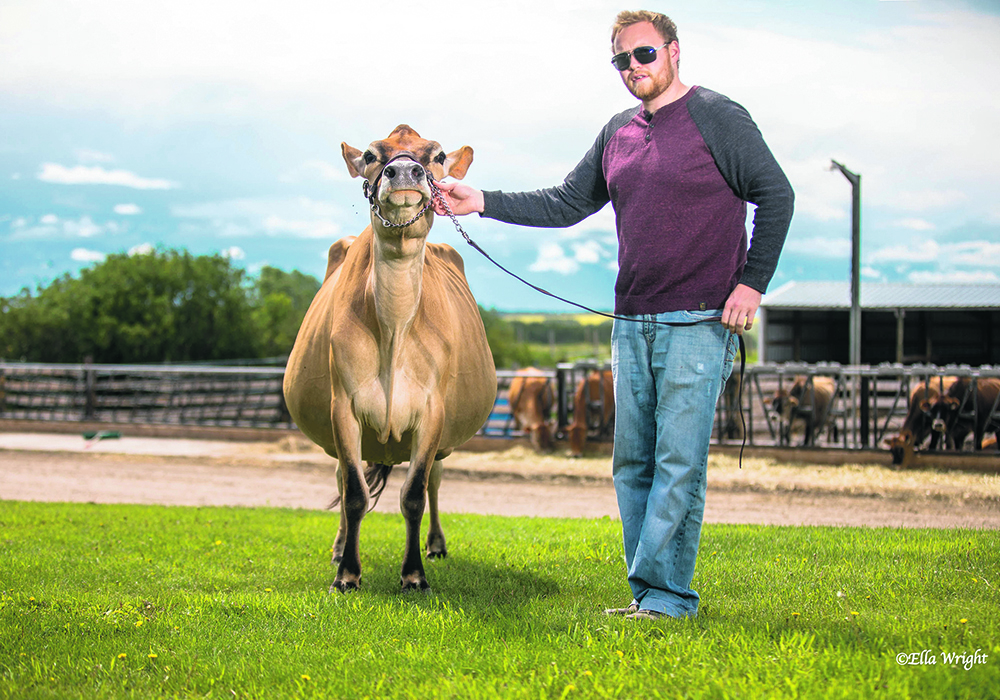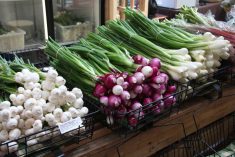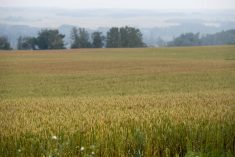Dairy farmers from Alberta have met with a succession expert but know there is more to do to make the transition final
An initial transition conversation two years ago was a boost, but there is still plenty of work needed to make the final farm transition, said Michael Haeni, a member of the upcoming generation looking at taking over the family farm.
Two years ago, three generations of the family sat down with a farm transition expert to talk about the transition of Lone Pine Jerseys, the Didsbury farm started when Adrian and Vreni Haeni and Vreni’s parents Kurt and Marie Louise Hanni immigrated from Switzerland in 1993. With Adrian and Vreni’s four sons now contemplating joining the farm, discussions were needed about the farm’s future look.
Read Also

Accurate accounting, inventory records are important
Maintaining detailed accounting and inventory records is not just a best practice; it’s a critical component of financial health, operational efficiency and compliance with programs like AgriStability.
“That is the first step we took. It was the time when we first sat down,” said Michael, then 26, now 28, and oldest of the four boys.
Together they were asked, where are you at, where do you see yourself and where do you see yourself around the farm?
“That certainly did help. We realized there were differences, but for the most part everyone was on the same page of what they wanted out of the farm or where they wanted the corporation to go,” said Michael, a recent Lakeland College agribusiness and University of Saskatchewan agriculture business grad.
“In two years, we haven’t accomplished that much either,” joked Michael.
Since then, the family dealt with the global pandemic and dusted off plans to build a dairy processing plant on their farm. Lone Pine Creamery is set to open by the summer to produce whole white and whole chocolate milk from their Jersey cows. The plant will also produce a Montreal-style cheese curd used in poutine, mashed potatoes, on nachos and in pub food.
Michael said he is most excited about a marshmallow-style cheese curd that is grilled over an open fire with a hot dog roasting stick or on a barbecue grill. The outside of the curd is seared and the inside is chewy and the flavour is magnified,” said Michael.
“We have been doing it at home for a year and bringing it to buddies’ homes and it is a huge success. Our circle hadn’t seen them before. Yes, you can put cheese on a fire and it creates awesome flavour.”
Michael’s father, Adrian, doesn’t know if the new processing facility will help, or hinder, the farm’s transition plans.
“Ask in about five years. Right now, it definitely makes it easier with diversifying the farm. It makes it easier that there should be more income to support families,” said Adrian, who said some of the sons will soon be getting married and starting families and the farm needs to ensure all the families are looked after.
“We needed to do something to make sure there was some additional income from all those ventures. On the other side, it makes it more difficult to know who is doing what. What are the rules with the new ventures and where is everyone going to fit in? There is a lot of uncertainty that way,” said Adrian.
Michael believes their family’s strong sports culture with an emphasis on teamwork will help their family work together. Teams that know their roles get to the cup faster, he said.
“And we have a team like that,” said Michael.
The farm income comes from selling milk and selling purebred Jersey cows on their central Alberta farm.
When a nearby farm recently came up for sale, they crunched the numbers to see if it made more sense to expand their existing farm or build a creamery to add value to the milk. The numbers were clear: adding value made the most financial sense.
“We kept running the numbers and no matter how we did it, the dairy processor is doable at the size we are doing,” said Michael, who has a pasteurization licence and is gearing up to begin processing milk.
When the families emigrated from Switzerland they were equal partners on the farm and Adrian is thrilled his sons show an interest in farming and agriculture.
“It was pretty clear to me and my wife that farming was always our dream, but it is our dream. We always said if the boys are going to be interested down the road that is great and we will make it possible, but there was never any expectation from us that they have to be in farming. It looks like we are pretty fortunate and happy that out of four they all show interest in farming. To what degree down the road they will be in our farm, it will be seen.”
While the four sons show an interest in the farm now, Adrian said crafting a farm transition plan with flexibility is key. In 10 years, the family mix may change, which makes it a good idea to have an expert help with the transition plan.
“I think it is really important that you have somebody impartial with an outside view looking into that. It helped us.”
What the family did do, with the help of experts, is freeze the value of the grandparents’ company shares and change the shares to non-voting shares. This allows the youngest generation to afford to buy into the shares.
“With this discussion, we had outside help with that. It made the whole discussion with my in-laws so much easier. For them to understand what our purpose was, that we didn’t want them out of the farm, but to set it up down the road for the next generation,” said Adrian, who looks forward to eventually becoming an employee and having his sons make the decisions.
“I told the boys many times too. I am not one to hang on and hang on. I don’t have an issue taking a paycheque from them down the road. It is the same thing with my father-in-law and my mother-in-law. Just because their shares changed, how they put input in the farm doesn’t really change. Just because the boys don’t have a share till now and they get paycheques, doesn’t mean they don’t have a say in how the farm is run. Because you have a title in the ownership on paper doesn’t mean you have more to say or more rights.”
Both Michael and Adrian agree one of the keys to their success has been open conversations. The boys have always been involved in key decisions and financial issues.
“From a pretty young age, even in high school, the financial things were never hidden from them. We always told them, ‘listen, this month there are so many expenses’ and on the other side they were told if we were fortunate to make this much money this month,” said Adrian.
Michael said he learned through courses at Lakeland College and through his family’s farm transition discussions about the importance of open communication and hiring an outside professional.
“It is like a therapist in the room. They can create a dialogue and just a setting that is comfortable to chat.”















